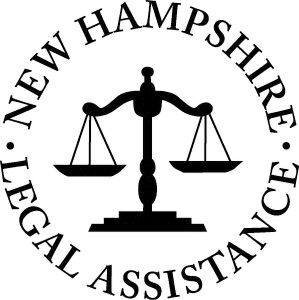Income Inequality and Access to Housing Opportunity
Income inequality is the unequal distribution of wealth across a society, with the majority of income generated concentrated within a small percentage of wealthy people. It is an issue that’s been debated nationally and has a real impact on many people here in New Hampshire seeking affordable housing. It has been driven in the state largely by rising costs and uneven wage growth. When housing costs rise, like they have in New Hampshire in recent years, it makes it more difficult for low or median income families to find a place to live.
Is there income inequality in New Hampshire?
The short answer is yes. Income inequality is present throughout the nation, and New Hampshire is not an exception. New Hampshire is considered an “opportunity state” with a low poverty rate, low unemployment rate, and comparatively affordable housing. However, many still find themselves left behind.
According to the NH Fiscal Policy Institute in 2019, half of New Hampshire workers earn less than the state’s median wage. At the same time, these workers’ wages have not kept pace with inflation and housing costs have outpaced inflation. Those who earn more than the median wage, however, have seen an increase in wages after adjusting for inflation. People at the top are making more while those who are lower earners are not seeing the same increases.
How does income inequality affect housing?
Many New Hampshire neighborhoods do not have much income diversity. This is an important issue because children raised in lower-income communities tend to not receive the same benefits as children in more affluent communities. For example, schools in lower-income communities often receive less funding from local property taxes than wealthier communities. This is likely to have lifelong effects, such as the perpetuation of generational poverty.
Zoning Laws and Impacts on Housing
Land use controls, such as zoning laws, regulate the way land is used and what purpose it serves within a town or city. For example, keeping a residential district residential rather than permitting commercial use. While zoning has historically been viewed as a way to preserve the safety and wellbeing of a community, these laws can be used to discriminate.
Overly restrictive land use regulations have contributed to the lack of economically diverse neighborhoods in New Hampshire, as well as the rest of the country. They have limited affordable housing developments from being built or have resulted in them being constructed in the “least desirable” areas of town. All of these factors make it incredibly challenging for lower income families to find a suitable place to live at an affordable price.
The Need for Workforce Housing
Enacted in 2008, the Workforce Housing Law “requires all municipalities to provide ‘reasonable and realistic opportunities’ for the development of homes that are affordable to low and moderate income families.” Unfortunately, this law has been slow to achieve its desired effect in communities that have remained resistant or have limited construction of affordable housing to projects for older adults.
Discrimination Makes Limited Housing Access Even More Challenging
Beyond the challenges of finding affordable housing, housing discrimination creates additional barriers to protected class members. Under state and federal law, it is illegal to discriminate in the rental, sale, or financing of housing based on race, color, national origin, religion, sex, familial status, disability, age, sexual orientation, marital status, or gender identity.
If you think you may be a victim of housing discrimination, contact us. The NHLA Fair Housing Project is here to help. Together we can fight discrimination in our communities and help protect everyone’s right to live where they choose.

